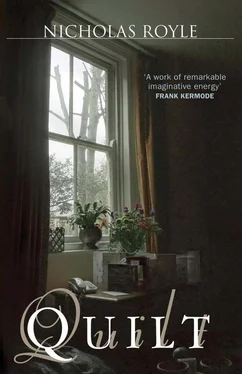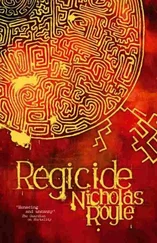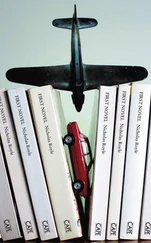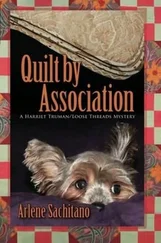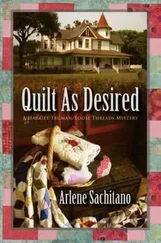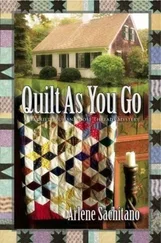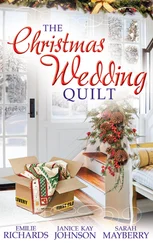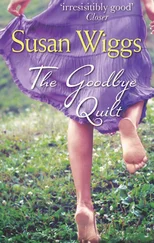Nicholas Royle - Quilt
Здесь есть возможность читать онлайн «Nicholas Royle - Quilt» весь текст электронной книги совершенно бесплатно (целиком полную версию без сокращений). В некоторых случаях можно слушать аудио, скачать через торрент в формате fb2 и присутствует краткое содержание. Год выпуска: 2011, Издательство: Myriad Editions, Жанр: Современная проза, на английском языке. Описание произведения, (предисловие) а так же отзывы посетителей доступны на портале библиотеки ЛибКат.
- Название:Quilt
- Автор:
- Издательство:Myriad Editions
- Жанр:
- Год:2011
- ISBN:нет данных
- Рейтинг книги:4 / 5. Голосов: 1
-
Избранное:Добавить в избранное
- Отзывы:
-
Ваша оценка:
- 80
- 1
- 2
- 3
- 4
- 5
Quilt: краткое содержание, описание и аннотация
Предлагаем к чтению аннотацию, описание, краткое содержание или предисловие (зависит от того, что написал сам автор книги «Quilt»). Если вы не нашли необходимую информацию о книге — напишите в комментариях, мы постараемся отыскать её.
Quilt — читать онлайн бесплатно полную книгу (весь текст) целиком
Ниже представлен текст книги, разбитый по страницам. Система сохранения места последней прочитанной страницы, позволяет с удобством читать онлайн бесплатно книгу «Quilt», без необходимости каждый раз заново искать на чём Вы остановились. Поставьте закладку, и сможете в любой момент перейти на страницу, на которой закончили чтение.
Интервал:
Закладка:
She has given him an ECG and discovered his heart rate is twice what it ought to be; no wonder he isn’t feeling too special. Also there appear to be some signs of jaundice, she tells me, which could mean, if there is cancer, it has reached his liver, but could mean a variety of other things. It’s too early to say for sure: gallstones, for example, can produce a similar effect. But for the moment, she says, she has prescribed something to slow his heart down and hopefully (yes, she uses the word in that hopeless way) make him feel more comfortable. She proposes keeping him in for the weekend and seeing how he is on Monday. He already has an appointment booked for next Friday to have a barium meal x-ray at the main city hospital, some twenty miles away. Cancer has been a suspicion for some time. For the past three or four months, he has complained to me of back pain but has refused to see a doctor about it.
Special beyond speciousness of words: my father has not been to the doctor’s, let alone a hospital, in more than thirty years. I try to take positives from this conversation with the doctor: perhaps it is not cancer after all, perhaps it is primarily a heart problem, the medicine she has prescribed will steady him no end, and he’ll be feeling much brighter in a day or two. The way a life shifts, paths reconstituted, scopes collide. Another thing, yes, collapsed. The ECG, she says, shows that my father probably had a heart attack about two years ago, around the time, in other words, of my mother’s death.
— Silent heart attacks are not uncommon, the doctor explains.
Typical of him to say nothing, I think, to have a heart attack and not even notice. I go back to the ward to find him awake but drowsy. The blind man’s wife is now present and the man with learning disabilities has taken his chair out through the french windows and is sitting in the sun. I tell my father about the ECG, the heart attack and steadying medicine. I’m not sure how much he has been told while I was away or how much he understands. Things are becoming so complicated. His face seems difficult of access, like approaching a mountain moving in fog. Yet his eyes are open as a child’s. I feel I am the only person in the world who really knows how to address him, how to be heard. And I experience this as something at once always felt and never registered till now.
Words for my father, to and of my dearest funniest Biblical father, dropping away. My beautiful father: tears starting once more to bulge in my eyes, I fight them off, order them back, this madness of lachrymosity. Lachrymimosa, as if I touch with words in my head and they shrink back, military tears standing to attention, veteran characters, starry-eyed, medalling, at a touch transported, bright young things just starting out, awaiting orders, ready to leap. What has made it possible in the past between us, to keep away weeping, all these years, is gone. Because it is going it is gone already. In his esoterically Buddhist way, he has always stressed the joys of silence, the turns of taciturnity. To tire the sun with talking and send him down the sky was never an option. Conversation with my father has always been a minimalist art. And from his eyes in all these years unwitnessed, it now occurs to me, even a tear of sadness shed. Unshed: the mountain of my father’s face, seen now going, the haunting cataracts.
Love in a hut become: Innocence, in a shed. My father’s shed, the small wooden edifice close to the house, humbly under lock and key, more or less unused now for several years, stuffed with a thousand tools and layered with sawdust, buried worktop, variety of vices, drills, files, knives, holemakers, hammers and chisels and axes and a hundred sandpapers, place of canny retreat. The years roll call back:
— Where’s Dad?
— In the shed.
Smallest room not in the house, tears unshed knowing not where. To shed — I shed tears for my father, shed past and present strange word I don’t say, only think, his word, his place, separating separated, parting from apart forever a part, to shed, the shed a shade, as if for the eyes, from all other eyes, in the shed sad, shade sad said, where’s Dad.
The funniest thing about the shed, the funniest thing about the whole house, the house beside itself, is the electric cable my father set up to run to the shed, at a height of perhaps seven feet, like a miniature telegraph wire, many years ago inadvertently severed by his wielding a ferocious hedge-trimmer, then almost as quickly mended not by replacing the cable but enclosing the damaged section in a transparent plastic bottle, shedding the house, shed or house on a drip-feed. Shedding tears for my father my English shadow, shadow words shadow wards, I, a doll with real tears, take his hand, holding hands, his breathing hard, as if he had permanent hiccups, a hiccius docius, hocus pocus, a struggle aspiring to expel air, right a blockage, surface a summit, or summat, his joky occasional pronunciation of some words, summit like that.
I tell him about the new pyjamas and underwear I managed to buy.
— How long am I going to be here? he asks, as if he hasn’t heard anything anyone’s said.
— Two or three nights and then we’ll see how you are, I say, with luck by Monday you’ll be feeling stronger and better.
They’re bringing round dinner now, cauliflower cheese followed by custard trifle. Breathlessly in tortoise slow-motion, pausing as if at every other moment to hiccup and every time falling short, he ingests perhaps three half-mouthfuls of the cauliflower cheese, once one of his favourite things to eat, so simple he even knew how to cook it himself. Perhaps three half-mouthfuls, a couple of sips of water, nothing more. I notice there’s a radio fixed in the wall above his bed and it’s almost news time. At home in recent years he has spent a good deal of time watching TV, dividing the time between 24-hour news programmes and, in the evening, a string of soap operas. I ask him if he’d like to hear the news. He shakes his head:
— There isn’t any these days, he says, it’s all just terrorism.
I sit with him quietly as he drifts, nods off then wakes, clear-eyed. While he sleeps I try to read one of the books I’ve brought along to the hospital. I wasn’t sure how long I might be here. Then he wakes again. I rest my hand on his. Up starts the theme-tune of the first of the soaps, on a TV that must be in the adjoining room. I decide to see if I can’t get a nurse to provide a television for him.
— So that, I tell him, you can watch your soaps.
— No, he says flatly, I don’t want to watch them, they’re not interesting any more.
Already he’s drifting off again, then coming to once more, innocent as a little boy.
— I’m going to go now, I say. I’ll be back in the morning around ten and hope you’ll be feeling better by then. Have a good night’s sleep.
— See you, mate, he gasps, propped up in the bed.
He’s held his right hand up in a kind of final salute and gives me a smile, as I make my way out. My father’s smile: he has often said how difficult it is for him. Laughter yes, in the past great waves of laughter, groaning writhing openmouthed, and yes, tears, of course, he would laugh to tears, tears of engulfing comedy. But to round his face up into a full and simple smile he is not able. With the result that there is no midway stopover between a somewhat straining almost sheepish half-smile, ghost or studied intimation of a smile, and at the other extreme a widemouthed beaming bordering on the maniacal. It is to this wavering accompaniment that I depart.

In the middle of the night the phone rings. It rings and rings, but I don’t hear it. The hospital calls. Then the police call.
Читать дальшеИнтервал:
Закладка:
Похожие книги на «Quilt»
Представляем Вашему вниманию похожие книги на «Quilt» списком для выбора. Мы отобрали схожую по названию и смыслу литературу в надежде предоставить читателям больше вариантов отыскать новые, интересные, ещё непрочитанные произведения.
Обсуждение, отзывы о книге «Quilt» и просто собственные мнения читателей. Оставьте ваши комментарии, напишите, что Вы думаете о произведении, его смысле или главных героях. Укажите что конкретно понравилось, а что нет, и почему Вы так считаете.
